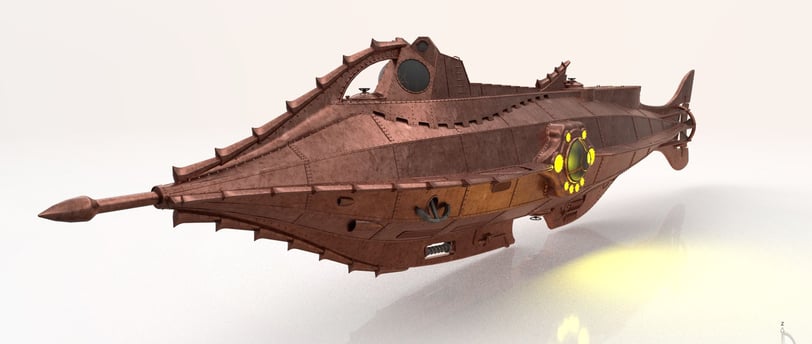Best Mechanical Product Designing Course in Coimbatore: Learn CREO from Experts
The CREO course details are available in Coimbatore.


Best Mechanical Product Designing Course in Coimbatore: Learn CREO from Experts
Mechanical design has become one of the most crucial skills in the engineering industry. As industries shift towards smart product development and innovation, mastering advanced design tools like CREO is a smart investment for mechanical engineers. If you’re based in Coimbatore, the heart of South India’s manufacturing sector, taking a Mechanical Product Designing Course with CREO is a great way to start or boost your design career.
What is CREO and Why It Matters?
CREO (formerly Pro/ENGINEER) is a powerful 3D CAD software developed by PTC. It is used by thousands of engineers worldwide for:
Parametric modeling
3D design & simulation
Sheet metal, surfacing, and assembly design
Mechanism modeling
Product lifecycle management integration
CREO stands out for its robust parametric modeling, advanced simulation tools, and seamless workflow between design and analysis. It is especially valued in automotive, aerospace, manufacturing, and heavy equipment sectors.
Why Take a CREO Course in Coimbatore?
Coimbatore is known as the engineering and manufacturing capital of Tamil Nadu. Many industries and product design companies in and around Coimbatore are on the lookout for skilled CAD designers. Learning CREO in this environment offers several benefits:
🌟 Local Industry Demand
Many companies in Coimbatore actively use CREO for design and development — from pumps and motors to textiles and automation tools.
🎓 Top Training Institutes
You’ll find reputed training centers offering hands-on, industry-focused CREO training in Coimbatore.
💼 Career Opportunities
A course in CREO opens up job roles such as:
Mechanical Design Engineer
CAD Engineer
Product Development Engineer
R&D Engineer
Course Structure: What You Will Learn
A typical Mechanical Product Designing Course with CREO covers both fundamental and advanced topics. Below is a sample breakdown:
1. Introduction to Mechanical Product Design
Understanding product development lifecycle
Basics of mechanical design thinking
2. Getting Started with CREO
Navigating the interface
Understanding design intent
Creating basic 2D sketches
3. Part Modeling
Sketch-based features
Extrude, revolve, sweep, and blend
Editing and modifying features
4. Assembly Design
Bottom-up and top-down assembly methods
Assembly constraints
Exploded views and interference checking
5. Sheet Metal & Surface Modeling
Design for fabrication
Bend reliefs, flanges, punches
Surface trimming and merging
6. Simulation & Mechanism Modeling
Basic FEA (Finite Element Analysis)
Motion simulation
Stress analysis and design validation
7. Drafting & Documentation
Creating 2D drawings from 3D models
Dimensions, tolerances, and annotations
GD&T fundamentals
8. Real-World Projects
Live projects with industry relevance
Portfolio creation for job interviews
Who Should Enroll in This Course?
This course is ideal for:
Mechanical or production engineering students
Diploma holders and ITI graduates
Working professionals in manufacturing or design
Entrepreneurs building physical products
Engineers preparing for international jobs
No prior CAD experience is required. Basic computer knowledge and engineering fundamentals are enough to get started.
Top CREO Training Institutes in Coimbatore
Here are some of the reputed centers offering CREO training in Coimbatore:
1. Fortress Institute of Training Solutions Pvt Ltd
One of India’s largest CAD training networks
Expert trainers with industry experience
Practical, project-based training
Certification and placement assistance
2. CADD Centre Coimbatore
Offers modular CREO training
Flexible timings and batch sizes
Industry-ready curriculum
3. CITECH CAD Training Institute
Personalized training for students and professionals
CREO, CATIA, and ANSYS under one roof
Certification and Career Growth
After completing the CREO course, you’ll receive:
Course completion certificate
Hands-on project experience
Assistance with job interviews and resume building
Many students go on to earn additional certifications like:
PTC CREO Certified User
Certified Mechanical Design Professional
These credentials help you stand out in job interviews and secure design roles in top companies.
What Makes a Good CREO Course?
When choosing a CREO training center in Coimbatore, consider the following:
Trainer’s experience and industry background
Access to live projects and real-world case studies
Job placement or internship support
Post-training career guidance
Lab facilities and access to CREO software
Job Roles After CREO Training
Completing a mechanical product design course with CREO can lead to several promising job roles, such as:
Mechanical Design Engineer
Product Designer
CAD Draftsman
Manufacturing Engineer
Tool Design Engineer
Average entry-level salaries for trained designers in Coimbatore range from ₹2.4 LPA to ₹4.8 LPA, depending on the role and experience.
Final Thoughts
If you’re passionate about product design and want to work in industries that build the future, mastering CREO is a smart step. Coimbatore offers the perfect blend of training infrastructure, industrial exposure, and job opportunities for mechanical design aspirants.
Whether you’re a student or a professional, enrolling in a Mechanical Product Designing Course in Coimbatore with CREO will give you the tools, confidence, and knowledge to succeed in the competitive world of engineering design.
📢 Ready to Start Your Career in Mechanical Design?
Check out CREO courses at Fortress Institute of Training Solutions or other leading CAD training centers in Coimbatore. The design world is waiting for your ideas — start building them today!
Syllabus
Introduction to Form Design:
Overview of form design principles.
Understanding the importance of form in product design.
Exploring examples of form-driven design in real-world products.
Basic Sketching Techniques:
Introduction to sketching tools in CREO.
Sketching simple forms: lines, arcs, circles, and polygons.
Applying constraints and dimensions to sketches.
Creating Basic Forms:
Extruding and revolving sketches to create basic 3D forms.
Manipulating geometry with direct modeling tools.
Applying material properties to basic forms.
Advanced Form Creation:
Lofting and sweeping techniques for creating complex forms.
Using blend and variable section sweep features.
Incorporating reference geometry to aid form creation.
Analyzing and Refining Forms:
Evaluating form aesthetics and functionality.
Conducting form analysis using tools like curvature analysis.
Refining forms based on analysis results and design objectives.
Surface Modeling:
Introduction to surface modeling techniques.
Creating and manipulating surfaces to refine form geometry.
Blending, trimming, and extending surfaces to achieve desired shapes.
Form Optimization:
Utilizing simulation tools to optimize form for performance.
Analyzing stress distribution, aerodynamics, and other factors.
Iteratively refining form based on simulation results.
Design Validation:
Verifying form design against design requirements and constraints.
Conducting virtual tests and simulations to validate form integrity.
Addressing any design issues or deficiencies through iteration.
Documentation and Communication:
Generating 2D drawings and documentation for form design.
Communicating form design intent effectively through annotations and annotations.
Exporting form designs for collaboration and presentation purposes.
Project Work:
Applying learned concepts to a practical form design project.
Working on real-world scenarios to create innovative form designs.
Presenting and discussing project outcomes for peer feedback and evaluation.
Hours
Open Hours: Mon – Sun: 9:00 am – 9:00 pm,
All working days.
Online and Offline
Classes are Available.
Contacts
+91 9566 860890
+91 9566 608904
fortedu11@gmail.com



